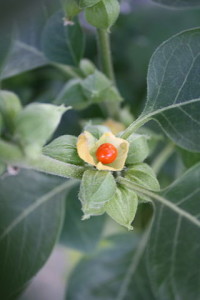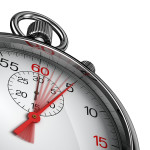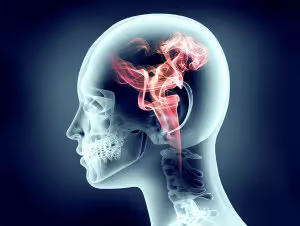Table of Contents
Ashwagandha (Withania somnifera) is one of the most powerful herbs powerful Ayurvedic herbs in healing. One of the main benefits of Ashwagandha is its remarkable stress-relieving properties. And stands shoulder to shoulder with some of the most potent drugs used to treat depression and anxiety.
In Sanskrit, Ashwagandha means “smell of horse”. Meaning this herb imparts the strength and vigor of a stallion.
Ashwagandha is native to India, Pakistan and Sri Lanka. And is now being grown in other regions including the United States.
Ashwagandha extracts helps protect your central nervous system and maintain brain health. It is a promising alternative for aging and neurodegenerative pathologies treatment including Alzheimer’s and Parkinson’s.
As an antioxidant, Ashwagandha seeks out and destroys free radicals. Free radicals have been implicated in many age-related diseases. There’s even some emerging evidence that Ashwagandha offers anti-cancer benefits
for brain tumors. Even though so much is out there stating that the active principles and underlying molecular mechanism (s) remain largely unknown for this ancient Ayurvedic herb.
Get ready to explore how Ashwagandha benefits your brain because we will go as deep as possible.
Ashwagandha helps:
- Reduce Stress: Ashwagandha helps reduce anxiety and depression. It reduces the stress hormone cortisol, lowers blood sugar levels, and improves lipid profiles.[i]
- Neuronal Regeneration: Ashwagandha helps regenerate axons and dendrites of brain nerve cells. And helps reconstruct synapses, the junctions where nerve cells communicate with other cells.[ii] Boosting memory and restoring neural networks affected by neurodegenerative disease.
- Neurotransmitters: Ashwagandha extract inhibits acetylcholinesterase. The enzyme responsible for breaking down the key neurotransmitter acetylcholine.[iii] Boosting memory, learning and cognition.
What is Ashwagandha?

Ashwagandha (Withania somnifera) is one of the most powerful herbs in Ayurvedic healing. This Indian traditional home medicine as an herbal remedy has remarkable anti-depressant qualities. And has been shown to be as good as many prescription pharmaceuticals in treating depression and anxiety.
Ashwagandha is often referred to as “Indian ginseng” because of its rejuvenating properties. But botanically, Ashwagandha and ginseng are unrelated.
Native to India, Pakistan and Sri Lanka. Ashwagandha is now being grown in other regions including the United States.
Ashwagandha is in the same family as the tomato. It’s a small woody shrub with oval leaves, and five-petal yellow flowers. The fruit is red and the size of a raisin. The plant is also known as the “Winter Cherry”.
Ashwagandha is known as an adaptogen. Which means it helps your body adapt to stress, both mental and physical.
The Indian Materia Medica lists Ashwagandha for:
- general debility
- impotence
- general aphrodisiac purposes
- brain fatigue
- low sperm count
- nervous exhaustion
- where general vigor must be restored.
Ashwagandha extract has been shown to be an effective antioxidant in the brain. Clearing the cellular waste implicated in Alzheimer’s Disease.[iv]
Is also boosts memory and cognition. By reducing stress and increasing acetylcholine. And regeneration of nerve networks in the brain.
How does Ashwagandha Work in the Brain?
Ashwagandha boosts brain health and function in several ways. But two in particular stand out.
- Ashwagandha enhances GABA receptors and regulates serotonin in the brain. It appears to work on neuron receptors, enabling GABA to connect easier. This inhibits the signals present under a stress response in the brain. Anxiety is reduced.
A study was conducted at The Canadian College of Naturopathic Medicine with 75 volunteers with moderate to severe anxiety. Ashwagandha produced a significant decrease in anxiety levels over the control group.[v]
- Ashwagandha improves cognitive and psychomotor performance in a healthy brain.
Researchers at Nizam’s Institute of Medical Sciences in Hyderabad, India worked with 20 healthy male volunteers. In this double-blind, placebo-controlled trial participants were given 250 mg capsules of standardized Ashwagandha extract for 14 days.
Significant improvements in reaction time were reported at the end of the trial. The study suggests that Ashwagandha extract improves cognitive and psychomotor (physical reaction) performance even when you’re in the best of health.[vi]
How things go bad
Chronic stress and cortisol can damage your brain. Neuroscientists at the University of California, Berkeley found that chronic stress triggers long-term changes in brain structure and function.[vii]
Chronic stress changes neural networks. Cortisol creates a domino effect that hard-wires pathways between the hippocampus and amygdala. (The amygdala (lizard brain) is the area responsible for your fight-or-flight response).
This hard-wiring caused by stress is not the way the brain was designed. But chronic, ongoing stress tricks the brain into rebuilding circuits and hunkering down for the long haul.
This re-wiring appears to be permanent. Unless you intervene with something like Ashwagandha.
 Chronic stress seems to ‘flip a switch’ in stem cells in the brain. And turns them into a type of cell that prevents connections to the prefrontal cortex. Preventing improved learning and memory.
Chronic stress seems to ‘flip a switch’ in stem cells in the brain. And turns them into a type of cell that prevents connections to the prefrontal cortex. Preventing improved learning and memory.
And laying down the scaffolding linked to anxiety, depression and PTSD (Post Traumatic Stress Disorder).
↓ Chronic stress coats neurons in myelin
↓ Chronic stress reduces the number of neurons
↓ Gray matter decreases and white matter increases.
Under conditions of chronic stress and excess cortisol, your brain’s neurons are coated (or sheathed) in myelin.
Under healthy conditions this “sheathing” is a protective measure. But this excessive sheathing is likely an evolutionary measure made to reinforce the connection between the hippocampus and amygdala. Improving the fight-or-flight response during extended periods of threat or attack.
In the modern world, chronic stress hijacks your fight-or-flight response system. It backfires in daily life in which you are not in physical danger.
Ashwagandha benefits
Ashwagandha undoes damage to the brain caused by chronic stress. And helps keep it healthy.
Ashwagandha has such beneficial activities for cognitive function. Glycowithanolides, one of the many compounds found in Ashwagandha, reduces cortisol. And overall energy levels are enhanced through optimizing mitochondrial function.
It also has GABA-mimicking effects in the brain. Comparable to the effects of prescription benzodiazepines like lorazepam (Ativan).
Ashwagandha can also help prevent and repair damage caused by Alzheimer’s, Parkinson’s and Huntington’s disease. Through its antioxidant and inflammation-reducing mechanisms.
Ashwagandha even provides protection and regeneration of neurons during opiate and heroin withdrawal. And eases withdrawal symptoms.
 In Ayurvedic medicine, Rasayana herbs are used to promote a youthful state of physical and mental health. The ancients considered Medhya Rasayana herbs to be working with higher brain function. These are mind-rejuvenating herbs.
In Ayurvedic medicine, Rasayana herbs are used to promote a youthful state of physical and mental health. The ancients considered Medhya Rasayana herbs to be working with higher brain function. These are mind-rejuvenating herbs.
Of the 8 or 9 most cherished herbal remedies, Ashwagandha is the highest or most prominent of Ayurvedic Rasayana herbs. Acting as an adaptogen, rejuvenating the nervous system, and boosting the body’s resilience to stress.
How does Ashwagandha feel?
Ashwagandha users report:
-
- Ashwagandha as a stress-reliever. If you are experiencing severe fatigue and brain fog, it’s likely stress. Chronic or severe stress can disguise itself in many ways. Including feeling abnormally fatigued. You find that you are not sleeping well. Or don’t feel rested and refreshed when waking up in the morning. Even after taking a sleeping pill. Many report a rapid change in energy and motivation as soon as they take Ashwagandha. Others won’t feel the effects for a couple of weeks before relief sets in. You’ll know Ashwagandha is working when you wake up in the morning feeling refreshed. And eagerly looking forward to starting your day.
-
- Ashwagandha as an anti-anxiety aid. As an anti-anxiety aid users say they feel their self-confidence has been restored. Your speech will feel more fluid and easier, especially in public settings. No more panic attacks.
- Ashwagandha as an antidepressant. Depression, even if it’s not professionally diagnosed, can destroy your life. Ashwagandha users say it is the best antidepressant they’ve ever used. Their energy is restored, motivation is back, and they’re able to focus.
Ashwagandha works on many levels in the brain. Cortisol levels are stabilized. And the damage to your brain begins to correct itself. Acetylcholine levels rise so you’re able to think clearly again.
Neurons get repaired, and cognition and memory return to levels you experienced when you were younger. And GABA receptors are re-activated producing a calming effect.
Ashwagandha Clinical Research
Researchers at Asha Hospital in Hyderabad, India did a double-blind, randomized, placebo-controlled trial with 64 subjects who had a history of chronic stress. The study group took a 300 mg capsule of full-spectrum Ashwagandha root twice a day for 60 days.
Follow up calls to participants were done on the 15th, 30th, 45th and 60th day of the trial. Researchers reported serum cortisol levels were substantially reduced.
 The report concluded “that a high-concentration full-spectrum Ashwagandha root extract safely and effectively improves an individual’s resistance towards stress and thereby improves self-assessed quality of life”.[viii]
The report concluded “that a high-concentration full-spectrum Ashwagandha root extract safely and effectively improves an individual’s resistance towards stress and thereby improves self-assessed quality of life”.[viii]
Ashwagandha as a nootropic
One study done in a lab in India subjected laboratory mice to electroconvulsive shock treatment. Or were given scopolamine to induce amnesia (memory loss).
Both sets of mice were given Ashwagandha extract daily after the shock or chemical treatments. Ashwagandha extract restored their memory and motor skills.[ix]
Ashwagandha as an antidepressant
Scientists did a study on rats to compare Ashwagandha with the popular benzodiazepine antidepressant lorazepam (Ativan). And the tricyclic antidepressant imipramine (Tofranil).
Researchers gave the rats either Ashwagandha, lorazepam or imipramine. 30 minutes later they put the rats through a maze, had them interacting socially, and even forced them to swim.
They concluded that as a mood stabilizer, Ashwagandha worked on depression and anxiety as well as either of the two antidepressants.[x]
Ashwagandha Dosage
Ayurvedic Pharmacopoeia of India recommends 3 – 6 grams daily of standard ground Ashwagandha powder.
- For arthritis: 250 – 500 mg of extract (4-5% withanolides)
- For antioxidant protection: 100 – 200 mg of extract (4-5% withanolides)
- For immunity: 100 – 200 mg of extract (4-5% withanolides)
- For relaxation: 250 – 500 mg of extract (4-5% withanolides)
- For stress: 250 – 500 mg of extract (4-5% withanolides)
- For sexual performance: 250 – 500 mg of extract (4-5% withanolides)
For higher Ashwagandha doses like 500 mg, take 250 mg in the morning and another 250 mg early afternoon. And note the distinction between standard ground Ashwagandha powder and an extract. The extract is much more concentrated.
Ashwagandha Side Effects
Note: Ashwagandha stimulates your thyroid hormones. So if you are hypothyroid, use Ashwagandha with caution. And check with your endocrinologist to be safe.
Ashwagandha is non-toxic at moderate doses. If you are pregnant do not use Ashwagandha as it could cause a miscarriage. This herb is an adaptogen with powerful hormonal effects.
Ashwagandha can enhance the effects of sedatives, antidepressant and anti-anxiety medications, including St. John’s wort.
It can also interact and possibly amplify the effects of immunosuppressants, blood pressure medication, and drugs used to control blood glucose levels.
Ashwagandha can boost the effects of alcohol. And do not use Ashwagandha if you have bleeding issues, or before surgery.
Other possible side effects include diarrhea, nausea, abdominal pain, drowsiness and slowed pulse. Ashwafandha anhedonia may also occur when you feel flat or emotionally numb.
And you should not use Ashwagandha if you are dealing with kidney or liver disease. A study published in 2023 and which was conducted in India found those with preexisting liver disease and who used Ashwagandha from only 2 weeks to 1 1/2 years suffered liver injury. 3 suffered liver failure and died.
Where to buy Ashwagandha
Ashwagandha is available as a powder, capsules, tincture and tea. The root and berry of the plant are used. The ground root of the herb is used as the base of an Ashwagandha supplement.
Active ingredients of Ashwagandha include alkaloids, saponins, and withanolides. Look for the percentage of active ingredients listed on the bottle or package. Typically, you’ll see something like “standardized to 4-5% of withanolides”.
NOTE: This post contains affiliate links, and I will be compensated if you make a purchase after clicking on my links.
A good choice of Ashwagandha extract is KSM66® which is a full spectrum root extract made by Ixoreal, a division of the Baldwa group of companies in India. This extract contains 5% withanolides and less than 0.1 Withaferin A (which is toxic).
You can buy it here: Click for Pure Nootropics – Ashwagandha (KSM66®)
Nootropics Expert Recommendation
Ashwagandha Extract 250 – 500 mg per day
 I recommend using Ashwagandha as a nootropic supplement.
I recommend using Ashwagandha as a nootropic supplement.
Your body does not make Ashwagandha on its own. So to get its benefits you must take it as a supplement.
Ashwagandha is especially helpful for those suffering from anxiety and stress. Studies show it helps stop and reverse the devastating effects of stress on your brain, and body. This nootropic helps repair the damage to neurons and synapses caused by chronic stress.
Ashwagandha is a powerful adaptogen. Which means it helps increase the effect of certain hormones when activity is low. And will block excess stimulation when activity is too high.
The benefits of Ashwagandha as an adaptogen helps balance cortisol in the body caused by chronic stress. Chronically elevated cortisol levels suppress immunity, create fat deposits on the belly, face and neck, reduces libido, causes bone loss, causes insulin resistance, and brain fog.
Balancing cortisol levels with Ashwagandha improves your sleep quality, immunity, stress response, organ function, reduces fatigue, and brain fog.
Ashwagandha is also helpful for those suffering from anxiety and panic disorders. A study published in Phytomedicine showed the calming effect of this herb was equal to the drug Ativan (lorazepam). Without the side effects.
You can safely take up to 750 mg of Ashwagandha extract daily if needed. Most get all the benefit they need with 500 mg. Dosed 250 mg in the morning, and another 250 mg early afternoon.
You can buy it here: Click for Pure Nootropics – Ashwagandha (KSM66®)









Join The Discussion - 506 comments
Timothy
February 11, 2021
Hi, I’ve been taking ashwagandha for almost an year and it was good in the beginning. For the past week though, i’ve been feelin super-anxious, pretty much more than ever before. Do you think it could be that thing causing it? Also, how long do you think it’d take it to completely leave my system once i stop taking it? thanks. I also stopped lemon balm after a few months of usage, for the same reason, how long do you think it’ll be until it leaves my system as well? thankz.
David Tomen
February 11, 2021
Timothy, feeling super-anxious is not a common side effect of Ashwagandha. See the Side Effects section above for the most common side effects caused by Ashwagandha.
But it may be the culprit for you. The fat-soluble compounds from the herb can build up in fat cells in your body. And taken long-term like you have could take up to 30 days to completely flush it out of your system.
ruth
January 27, 2021
Also, are there any herbs I can take for insomnia that do not affect GABA receptors? I’ve tolerated to Valerian, hops, passionflower, etc. and now they don’t work. How long do you think this desensitization of my GABA receptors will last if i avoid all herbs that affect GABA?
David Tomen
January 27, 2021
Ruth, herbs and/or adaptogens will not desensitize GABA receptors nor any other type of receptor. They are called adaptogens for a reasons. Because they bring balance back to your system. So if the supplements you mentioned stopped providing benefit it’s for some other reason than desentized receptors.
BTW, I also am not aware of any study that puts a time limit on how long you can use Ashwagandha.
Here is a link to a page that has 7 adaptogens which makes it easier to scroll through and see which ones affect GABA: https://nootropicsexpert.com/top-7-nootropic-adaptogens-to-conquer-anxiety-and-stress/.
I have personally found that CBD Oil (https://nootropicsexpert.com/cbd-oil/) works great for insomnia. Something you may consider.
Only other I can think of that may help you is L-Theanine (https://nootropicsexpert.com/l-theanine/). It influences all the major neurotransmitters including GABA. But not in a major way like other supplements. It also reduces cortisol and regulates brain waves. I find it very helpful for insomnia.
ruth
January 27, 2021
How long can I take ashwaganda? Is there a risk for desensitizing the gaba receptors and thus causing something of a rebound insomnia (my biggest problem being insomnia)?
Serge
January 24, 2021
Hello David
I have thyroid problem but i use medecin and is normal now ,i still use it the medecin everyday .It possible to use Ashwaganda.
Thanks
David Tomen
January 24, 2021
Serge, it depends on your system. I am hypothyroid that is controlled with thyroid medication. And I cannot use Ashwagandha because of my thyroid issues.
It is likely that Ashwagandha is NOT the supplement for you because of how it affects thyroid hormone. But you may be one of the few who can use it. The only way to find out is to try it and see how you react.
Ralphy
January 25, 2021
Hi David is it safe to ween off Ativan while also taking ashwanganda for anxiety
David Tomen
January 26, 2021
Ralphy, there is a ‘moderate’ contraindication between lorazepam and Ashwagandha. It could have too much of a sedative effect so be careful. When these things are classed as “moderate contraindication” it could be serious depending on how you personally react to it.
anthony
January 20, 2021
Hi David.
Is it safe to take Ashwagandha KSM-66 600mg(For severe anxiety and poor sleep) ones a day with Cymbalta 30mg? Cymbalta in the morning and Ashwagandha KSM-66 at say 8pm for sleep?
Also, how long before Ashwagandha KSM-66 starts helping for anxiety and is 600mg ones a day a good dose?
Thank you.
David Tomen
January 21, 2021
Anthony, there is no reported contraindications between the two: https://www.drugs.com/drug-interactions/duloxetine,cymbalta-index.html.
But that’s “reported” problems. So the answer is “I don’t know”.
Some report immediate benefits from using Ashwagandha. But some may take a couple of weeks of daily use before you start experiencing everything Ashwagandha has to offer.
Anthony
January 22, 2021
Thank you David.
I think i am going to give it a try and see cause this anxiety is killing me.
Going to try the lowest dose(300mg) ones a day, at night and Cymbalta in the morning for a week or so and then maybe 2 times a day. Will stop as soon as i experience any side effects.
Mike
January 19, 2021
I can’t find what brand and dosage to buy, can you provide a link to the best Ashwaganda supplement you recommend I buy? I don’t see any 250mg or 300mg options. I looked up KSM66 but it is 1950mg which doesn’t make sense since your recommendation is 500mg a day. What would 1950mg be for? Also what do you think is better for anxiety Ashwaghanda or Rhodiola? I heard you can only take one or the other at a time, would you take both or just one?
David Tomen
January 22, 2021
Mike, I found one Ashwagandha extract made by Tribe Organics which does not contain any toxic “other ingredients” using KSM66®. One capsule of their extract is 300 mg. You’ll find it here: https://amzn.to/2M9BBd7
Your other question about anxiety is it depends on the cause. Ashwagandha works with acetylcholine, serotonin, GABA and reduces cortisol.
Rhodiola Rosea works primarily like an MAOI which affects dopamine and norepinephrine.
You can use both. Buy I suggest experimenting with each for at least a couple of weeks on its own. Try one for 2 weeks and the other for 2 weeks and see which works better for you. If one works better than the other you’ll have a better idea on what is causing your anxiety.
Arik
January 17, 2021
Hi, is it okay to combine my Ksm ashwagandha with white ginseng? I am using them both for energy and mental benefits.
Also some people say we should cycle ashwagandha after three months in order to prevent the body getting used to the herb and therefore not reaping it’s benefits, is this true?
Also, I am not sure if you’ve heard of nofap, it’s all about quitting masturbation and watching porn, of course, this causes a flatline which is a period in which one feels a a withdrawal, no motivation, brain fog, low dopamine etc. What would be the best nootropics to help with this flatline, both for mental and physical benefits?
Thanks so much for your energy!
David Tomen
January 18, 2021
Arik, you can use Ashwagandha with white Ginseng without a problem if it works for you.
There is no reason to cycle Ashwagandha and cycling would not provide any additional benefit.
The best way to counter low dopamine is to use a precursor to boost it. And support the health of dopamine receptors. Use L-Tyrosine to increase dopamine. And NAC and Lion’s Mane Mushroom to repair and support dopamine receptors.
Mind Lab Pro would be a good option as well because it contains 500 mg Lion’s Mane, Phosphatidylserine (PS), and Rhodiola Rosea which supports dopamine use. And Rhodiola Rosea activates AMPA receptors which in turn activates the dopamine/reward/motivation pathway.
I like using Mind Lab Pro as my ‘base’ for my stack because among all of its other benefits, it also helps with brain repair and maintaince.
Arik
January 18, 2021
Oh yes and how about ashwagandha and ultra bone up supplements by jarrow, would there be any interactions?
Okay I would have a look on the mind lab pro.
David Tomen
January 22, 2021
Arik, it looks like that Jarrow supplement is just a slimmed-down multivitamin so shouldn’t cause a problem with Ashwagandha.
Arik
January 24, 2021
Last question please.
If you can choose l-tyrosine or lions mane for my flatline, which one would you? I think lions mane as it can help heal the fried dopamine receptors?
David Tomen
January 25, 2021
Arik, Lion’s Mane and NAC to support dopamine receptors.
Chad A. Gross
January 11, 2021
Hello there,
I have recently stopped taking Cymbalta due to negative side effects. I am taking a high quality Ashwagandha extract. I have been taking 600 mg daily (300 mg in the morning and 300 mg in the afternoon) for 1 1/2 wks and I am experiencing no perceivable benefits. And I am struggling to fall asleep, although I do feel rested when I wake-up. My question is this – How long do I take Ashwagandha before deciding it doesn’t work for me? Should I be feeling a benefit or is it too early to tell?
Thank you so much for your time and wisdom
David Tomen
January 11, 2021
Chad, Cymbalta helps boost serotonin and norepinephrine activity in very specific regions of your brain. And if it worked for you in the past then Ashwagandha is not the best choice. Because Ashwagandha boosts acetylcholine, and enhances GABA receptors and serotonin in the brain. But doesn’t touch norepinephrine.
Please go to this article: https://nootropicsexpert.com/best-nootropics-for-social-anxiety/. And scroll down to the section “Norepinephrine”. You’ll notice suggestions like magnesium, L-tryptophan and St. John’s wort which may help you more than Ashwagandha.
Chad A. Gross
January 12, 2021
Hello Mr. Tomen,
I hope I am not abusing the comment section! Again, thank you for your help. I can’t thank you enough for your time and wisdom. I have moderate inflammation in my stomach (gastritis) so I have to be careful what I take. I am taking an excellent probiotic, which is helping tremendously.
In regard to my anxiety/depression, I did try magnesium and it upset my stomach quite a bit. I am actually considering L-tryptophan or St. John’s Wort right now. Given what I have shared, do you think one would be better than the other? I am leaning toward SJW right now.
Thank you again!
David Tomen
January 13, 2021
Chad, probably St. John’s wort. Try it and see if it works for you. If not then try L-Tryptophan.
Chad Gross
January 21, 2021
Hello Mr. Tomen,
Thank you so much again. One more question – Do you think L-Theanine would also be a good choice? I just watched your video on it and it seems to also be a good fit for what I am trying to address, but I’m not sure. I just started SJW (Perika per your recommendation) so it may be a moot point, but I was just curious if L-theanine could be an option moving forward.
God bless,
Chad
David Tomen
January 21, 2021
Chad, not sure how much help you’ll get from L-Theanine is you are already using St. John’s wort. SJW is very powerful supplement and ranks in a category of its own in my opinion.
Chad Gross
January 22, 2021
Thank you Mr. Tomen!
I will go ahead and move ahead with 900 mg of St. John’s Wort per day. Hoping it helps with my clenching at night as well.
Again, thank you for SO MUCH for your advice and time.
Chad